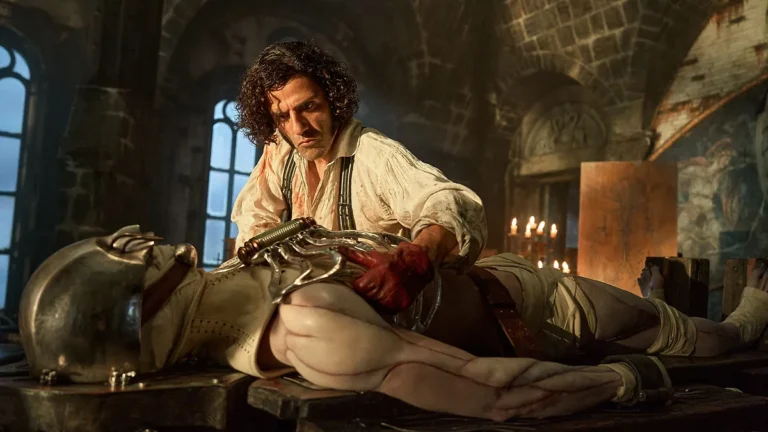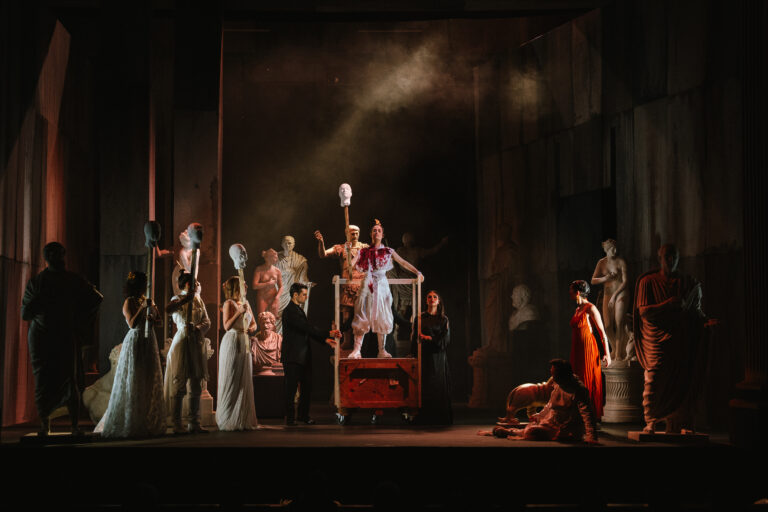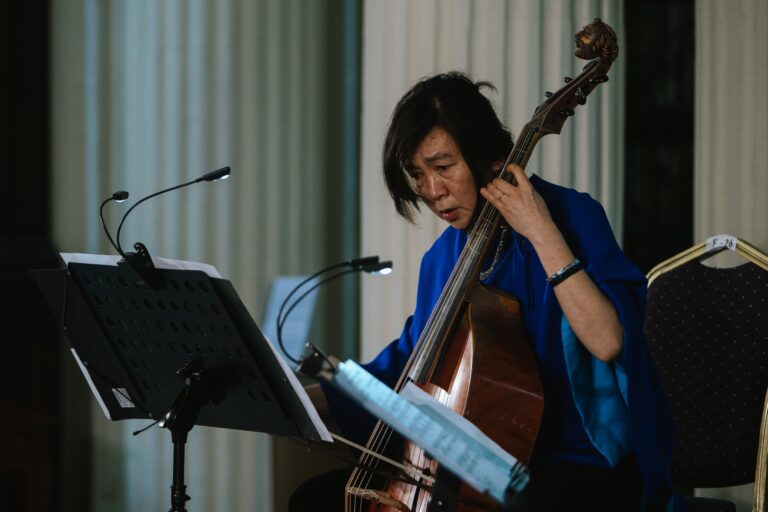The Phoenician Scheme starts with a bang… quite literally.
It opens with a moment of striking violence that, along with Alexandre Desplat’s brilliantly ominous score, suggests that Wes Anderson could finally be taking his style in a different direction. Could this be a darker, more muscular turn for the Texan auteur?
Unfortunately, soon after the opening title card, we find ourselves squarely back in Andersonland. It’s all the standard fare we’ve come to expect from Wes—from perfectly composed top shots to the trademark deadpan deliveries.
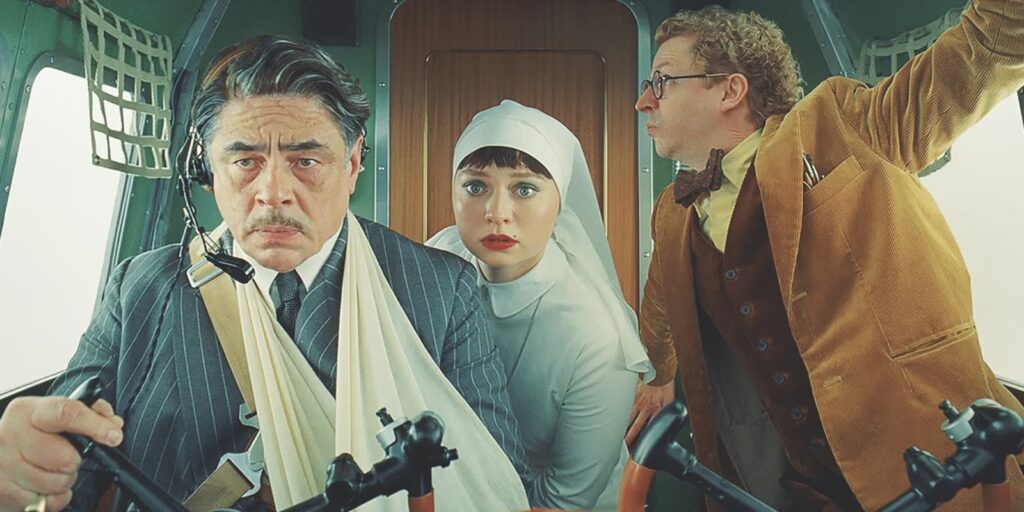
The rather convoluted plot sees Benicio Del Toro’s tycoon industrialist, Zsa Zsa Korda, attempting to get an international development project off the ground, all while being the target of assassination attempts. That sort of logline might suggest a globetrotting thriller, but The Phoenician Scheme is rather hard to categorize in terms of genre.
It plays with espionage archetypes (spies, assassins, blackmail…), but the artisanal artifice—once so fresh in The Royal Tenenbaums and Rushmore—never allows the characters to feel as though they are in any real danger… a rather crucial element of a “thriller.”
So, is it a comedy? Well, the incredibly arch tone and the rat-a-tat speed of the dialogue would suggest so, but The Phoenician Scheme isn’t particularly funny—save for a couple of gags already spoiled in the trailer.
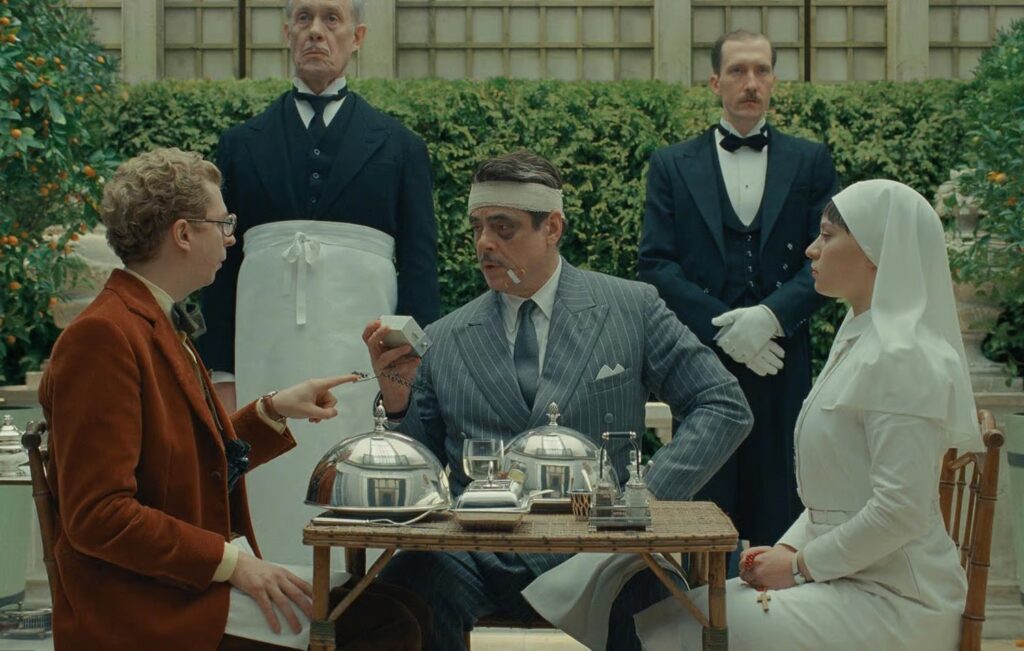
Drama? Once again, Anderson’s style keeps the audience at an emotional arm’s length. We feel like detached observers watching an elaborate clockwork set, populated by dapper automatons rather than living, breathing humans. While his whimsical wind-up world has worked wonderfully before (The Grand Budapest Hotel, for example, is fantastically entertaining), in recent years, the quirksome has turned rather irksome.
Benicio Del Toro is a solid choice for the lead; his weathered face and gravelly voice lend the part a certain weighty gravitas. Mia Threapleton, as Korda’s disapproving daughter Leisl, embodies yet another of Anderson’s signature ice queens—a model of blank-faced, Wednesday Addams-lite chic. Threapleton is garnering plenty of buzz for her performance and is clearly having fun playing in Wes’ dollhouse. However, when so much of the drama revolves around her relationship with her father, it’s hard to care when her own character seems so apathetic.
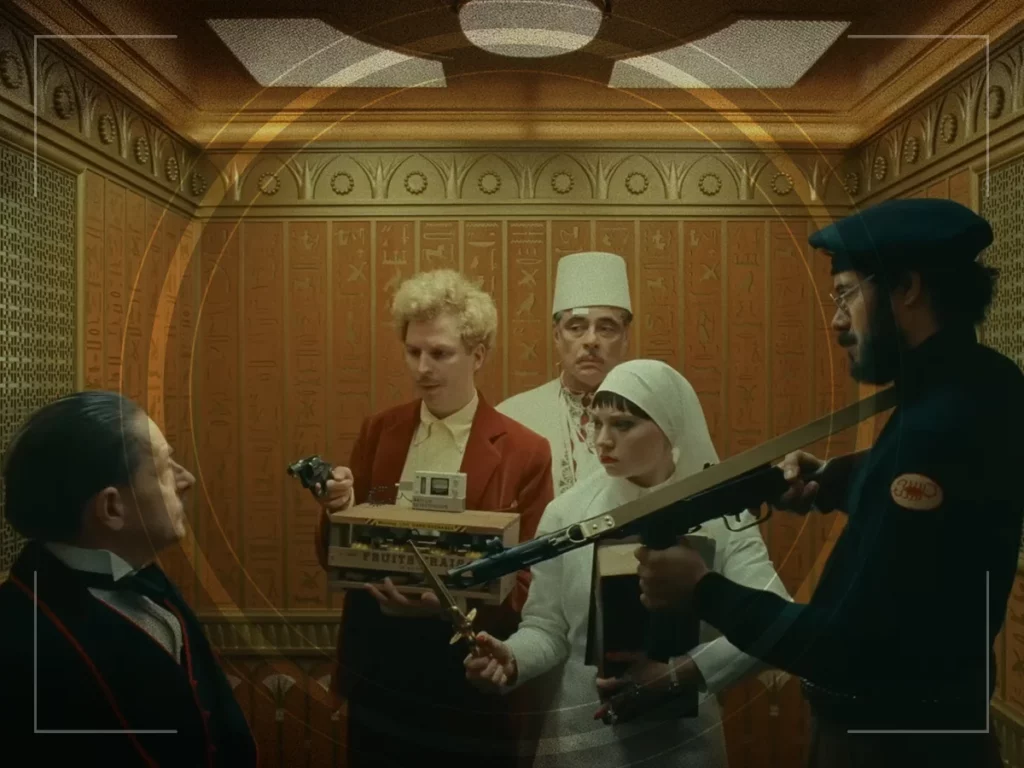
It is perhaps Michael Cera who is the standout. It’s surprising that cinema’s poster boy for adorkable charm took so long to find himself in the Andersonverse, but he has a ball here, playing a Norwegian entomologist with an enjoyably ludicrous accent.
Those who are devout members of the cult of Wes may well love being parachute-dropped into his perfectly symmetrical imagination. There’s certainly no denying the visual beauty to be found here. However, those hoping for a true surprise from the acclaimed director will just need to keep waiting.


